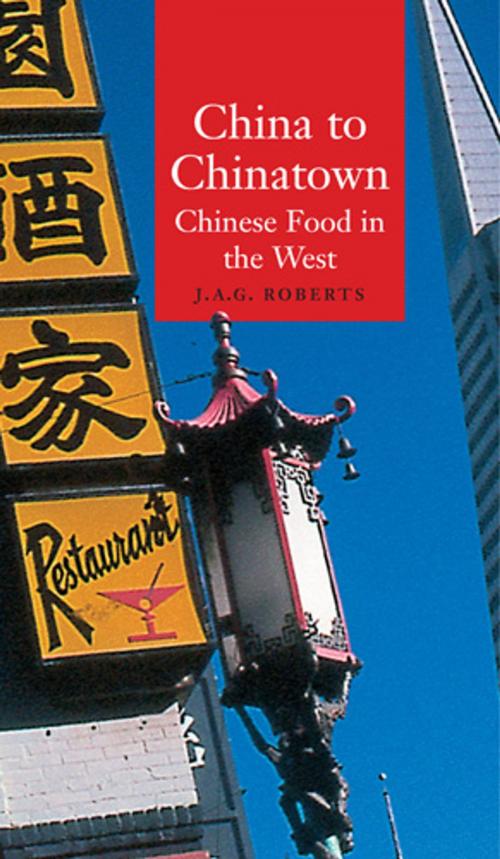China to Chinatown
Chinese Food in the West
Nonfiction, Food & Drink, International, Asian, Social & Cultural Studies, Political Science, International Relations| Author: | J.A.G. Roberts | ISBN: | 9781861896186 |
| Publisher: | Reaktion Books | Publication: | July 4, 2004 |
| Imprint: | Reaktion Books | Language: | English |
| Author: | J.A.G. Roberts |
| ISBN: | 9781861896186 |
| Publisher: | Reaktion Books |
| Publication: | July 4, 2004 |
| Imprint: | Reaktion Books |
| Language: | English |
China to Chinatown tells the story of one of the most notable examples of the globalization of food: the spread of Chinese recipes, ingredients and cooking styles to the Western world. Beginning with the accounts of Marco Polo and Franciscan missionaries, J.A.G. Roberts describes how Westerners’ first impressions of Chinese food were decidedly mixed, with many regarding Chinese eating habits as repugnant. Chinese food was brought back to the West merely as a curiosity.
The Western encounter with a wider variety of Chinese cuisine dates from the first half of the 20th century, when Chinese food spread to the West with emigrant communities. The author shows how Chinese cooking has come to be regarded by some as among the world’s most sophisticated cuisines, and yet is harshly criticized by others, for example on the grounds that its preparation involves cruelty to animals.
Roberts discusses the extent to which Chinese food, as a facet of Chinese culture overseas, has remained differentiated, and questions whether its ethnic identity is dissolving.
Written in a lively style, the book will appeal to food historians and specialists in Chinese culture, as well as to readers interested in Chinese cuisine.
China to Chinatown tells the story of one of the most notable examples of the globalization of food: the spread of Chinese recipes, ingredients and cooking styles to the Western world. Beginning with the accounts of Marco Polo and Franciscan missionaries, J.A.G. Roberts describes how Westerners’ first impressions of Chinese food were decidedly mixed, with many regarding Chinese eating habits as repugnant. Chinese food was brought back to the West merely as a curiosity.
The Western encounter with a wider variety of Chinese cuisine dates from the first half of the 20th century, when Chinese food spread to the West with emigrant communities. The author shows how Chinese cooking has come to be regarded by some as among the world’s most sophisticated cuisines, and yet is harshly criticized by others, for example on the grounds that its preparation involves cruelty to animals.
Roberts discusses the extent to which Chinese food, as a facet of Chinese culture overseas, has remained differentiated, and questions whether its ethnic identity is dissolving.
Written in a lively style, the book will appeal to food historians and specialists in Chinese culture, as well as to readers interested in Chinese cuisine.















